#disney fox merger
Explore tagged Tumblr posts
Note
Big Wolf On Campus was such a great show! :D
Oh my Gosh, you watched it? People i know look at me like i have 5 heads when i bring up things i used to watch.
I think I used to watch a lot of the shows airing on that channel back in the day.
The kind of annoying show Angela Anaconda I believe was on that one, and like strange days at blake holesey high? which i think was canadian (rumored to have daniel clarks brother in it) and I saw a familiar face from one of those RFR or degrassi era crossover kinda kids on (or from lifetime movies), also a music driven talent kind of show with fergie's band wild orchid (? for clarity) which was pre-black eyed peas on most saturday mornings. i recall that show being ultra corny tbh, cringier than star search from the 90s, and lastly i remember some show about s club (a band at the time) where they'd sing and have random adventures in miami, florida for some reason and they're like European with thick euro accents but high energy singing and such, i loved them and was obsessed naturally, and still bop to them if they come on spotify.
At night like on my dinky vhs tapes, i would tune in or record movies like Casper meets Wendy (with a young Hilary Duff) or whatever they had on, during their October blocks of Halloweenish shows and films which they still do when they changed over to ABC family & now more recently Freeform.
Aw so nostalgic right now, such good times in the late 90's and early 2000's. Thanks for messaging me, I don't feel so alone in remembering that show.💌😊
#asks#stardustviolet#💌 tysm for the ask#i guess i wanna say with all this remember: i may love a lot shows made by canadians and stuff but i live in the USA lol#and like idk if these shows were made for us audien or were like brought to use thru merger like with the-n/teennick or viacom/abc idk tbh!#no clue tbh but yeah i'm american so i saw this stuff on cable#2000s#shows#tv#abc family#fox family#tadio disney used to play a lot of the music from these shows#especially sclub#i guess they had a deal with their record compay#idk if there were commercials#i no longer have those tape recordings#if i still do i have no vhs or why to convert#none of these shows are steaming haha#but like its just funny that some people share similar memories!#my friends and i used to make up dances for sclub songs when it was on#like we had legit crushes on the dudes#cringe#90s/00s era fox/abc family/freeform was so different/low budget than it is now#still plays 700 club at night and then i switch channels lmao idk don't wanna know! why do they do that?#might wanna rewatch the fosters soon though my bf and i were talking about it yesterday
2 notes
·
View notes
Text
I’ve seen some people complaining about Channing Tatum/his accent in Deadpool & Wolverine, and I just want to set a few things straight.
Channing has been on the docket to play Gambit since 2005, but each and every time, the character was cut from the script, he had a prior contract, or the director kept getting replaced until the project was scrapped 4 years later with the Fox/Disney merger.
He has family in Louisiana and grew up in the bayous (albeit in rural Alabama). This character has meant something to him since CHILDHOOD when it comes to representation in media.
Gambit doesn’t speak SAE (Standard American English). He’s a street urchin from Acadia/New Orleans. He grew up speaking Cajun (a mix of Southern American, Canadian French, and España Spanish grammar applied to a mostly English vocabulary) and Louisiana French (an offshoot of Canadian French from Acadians).
Every person I’ve seen online who ACTUALLY GREW UP around people who speak Cajun, Creole, and/or Louisiana French has said that his accent is SPOT ON, maybe even a little too clear.
All this to say: if you can’t understand Gambit in Deadpool & Wolverine, you’re not supposed to. That’s the bit: unless you’re used to those dialects and accents, you’re shit outta luck trying to parse it out without help. Hell, even Rogue, who grew up in the South, doesn’t know what he’s saying half the time.
#channing tatum#the gambit#gambit#ragin Cajun#le diable blanc#remy lebeau#deadpool#wolverine#deadpool & wolverine
12K notes
·
View notes
Text
CALL TO ACTION to support WGA/SAG-AFTRA: Submit a comment about the corporate monopoly crisis.
August 18, 2023: You can personalize the template message included in the above link, or simply just add your name & email. Seems like it's US only; please boost if you can't sign yourself.
From the WGA:
"More than 100 days into our strike, as we continue to fight for the sustainability of our profession, events in Washington, D.C. provide an opportunity for writers to shine a light on one of the root causes of the strike: media consolidation. For decades, the WGA has advocated for stronger antitrust oversight, bringing attention to the ways that mergers and vertical integration in our industry – from AT&T-Time Warner to Warner Bros.-Discovery to Amazon-MGM to Disney-Fox – have consolidated the power of our employers and harmed writers as well as the diversity of content. In numerous reports and policy filings – including a new report called The New Gatekeepers: How Disney, Amazon and Netflix Will Take Over Media, released yesterday – the WGA has documented the threat to our industry from past and future consolidation and called for more aggressive antitrust enforcement. Our current strike highlights the urgency of the issue; studios gained power through anti-competitive consolidation and vertical integration and then used that power to push down wages and impose more precarious working conditions for writers while profiting off of their work, and currently – together – refuse to bargain a fair contract for writers to mitigate those harms. Last month, the FTC and DOJ jointly released proposed revisions to their Merger Guidelines, a policy document designed to guide law enforcement around consolidation. These new Draft Guidelines are part of an effort by these agencies to reinvigorate antitrust enforcement. Compared with prior versions of Merger Guidelines, they give significantly more weight to the ways that mergers can be harmful and, for the first time, explicitly direct agencies and courts to consider how mergers can hurt workers. The Draft Guidelines have been released for public comment, and the FTC and DOJ want to hear from people who have been affected by consolidation – people like you.”
The FTC and DOJ are accepting comments on their revisions of the Merger Guidelines until September 18.
#sag-aftra strike#sag strike#actors strike#fans4wga#union solidarity#wga strong#sag-aftra strong#i stand with the wga#wga strike#writers strike
2K notes
·
View notes
Text

American Dad Returns To "FOX Animation Domination" With Two New Seasons As The TBS Run Ends After 10 Years.
American Dad! is returning home. According to DEADLINE, the comedy, created by Seth MacFarlane, Mike Barker and Matt Weitzman, will return to FOX Animation Domination starting with its upcoming 22th season, marking the return to the network following a big break after leaving the network in Fall 2014.
In the early morning TV Line confirmed that American Dad ends its run at TBS as the Warner Bros. Discovery owned channel will no longer serve as the destination for new episodes. Reruns for the series will continue to air on Adult Swim and TBS till 2030.
American Dad returning to FOX is coming off with two-season renewals bringing the show to 23 seasons. The pickup by Fox is expected to be for multiple seasons. Before the news broke fans of the series speculated that the show could move to Disney owned services and networks like Hulu, FX or Freeform specially since in February 2025 one of the cast members posted a picture that table reads for the new season where underway. Reps for FOX Network and 20th Television Animation declined comment.
The upcoming American Dad! finale officially closes a chapter for TBS as it is the network’s last remaining scripted original. The process kicked off after the Warner Bros.-Discovery merger which was completed a couple of months after American Dad!’s most recent two-season renewal. The final episode of American Dad on TBS is set to air March 24 with "What Great Advancements!".
Reports mention that Warner Bros Discovery tried to cancel the series in 2022 but failed due the series and IP being owned by The Walt Disney Company.
#American Dad#Seth McFarlane#Mike Barker#Matt Weitzman#20th Century Studios#20th Television Animation#FOX Network#FOX
32 notes
·
View notes
Text
Monday, July 3.
Nimona! *spoilers*
*WARNING! Major spoilers for Nimona follow.*
It's colorful, queer, and finally here. Trials and tribulations can make the victories all the sweeter, or so we are told. Only it seems there is some proverbial proof in the pudding: #nimona has finally made its way to Netflix after something of a bumpy ride, to put it lightly—and we are here for it. It's been a long time coming, too, with years and years spent in development hell.
Since its inception in June 2015, the film has survived a mega media merger between The Walt Disney Corporation and 20th Century Fox Animation (and delayed twice); in February 2021, one year before its projected release, Disney announced it was shutting down Blue Sky Studios, and production of the film was canceled entirely; it was then revived by Annapurna and Netflix; experienced several changes in creative leadership and a global pandemic (you may have heard of it) and a studio shutdown just as the film was finally coming together.
Now, the story that started life in ND Stevenson's beloved webcomic finally has made its way into silver screen heaven with its arrival on Netflix these past days. And it seems the dashboard's faultlessly loyal, long-time fandom can't get enough of this wild, wonderful, and life-affirming adaption.
#today on tumblr#nimona#nimona netflix#nimona film#ambrosius goldenloin#nimona comic#nimona spoilers#spoilers nimona#nimona spoiler#nimona movie#nd stevenson
1K notes
·
View notes
Note
What's your dream lineup for the MCU X-Men?
Honestly? I hate the MCU movies.
I have zero excitement for X-Men because Disney definitely won’t let directors DO “Claremont-esque” 80’s space soap opera X-Men or Grant Morrison’s batshit crazy era.
Even “X-Men ‘97” I dislike because I don’t like the pacing (the original series did a better job at “sitting with” certain comic stories and decades for a while)….
I was someone who was pissed about FOX being bought out- I LOVED Logan and the first Deadpool and was excited about the possibility of an “X-23” film or “Multiple Man” film…
Even the original X-Men films, I thought were fine, even if they weren’t as good as the comics- directors at least showcased powers in an interesting way and films like “DoFP” I thought did a great job at humanizing Xavier (something the comics consistently fail at)
Even FF, which was the supposed “benefit” of Disney having full rights, looks like it’s going to bomb- it’s not like we’re getting a cool Doom out of this Capitalistic merger.
Truthfully- I feel like MCU and WB is running super hero films into the ground and will inevitably kill the genre in a year or two, with how things are going.
#Question#Answer#MCU#Disney#warner bros#x men#marvel#Fox#XMCU#20th centery fox#x men the animated series#x men 97
28 notes
·
View notes
Text
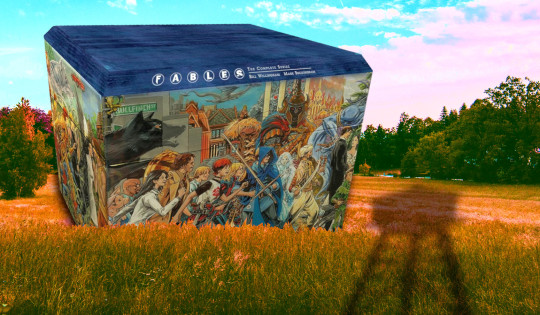
On September 22, I'm (virtually) presenting at the DIG Festival in Modena, Italy. On September 27, I'll be at Chevalier's Books in Los Angeles with Brian Merchant for a joint launch for my new book The Internet Con and his new book, Blood in the Machine.

It's been 21 years since Bill Willingham launched Fables, his 110-issue, wide-ranging, delightful and brilliantly crafted author-owned comic series that imagines that the folkloric figures of the world's fairytales are real people, who live in a secret society whose internal struggles and intersections with the mundane world are the source of endless drama.
Fables is a DC Comics title; DC is division of the massive entertainment conglomerate Warners, which is, in turn, part of the Warner/Discovery empire, a rapacious corporate behemoth whose screenwriters have been on strike for 137 days (and counting). DC is part of a comics duopoly; its rival, Marvel, is a division of the Disney/Fox juggernaut, whose writers are also on strike.
The DC that Willingham bargained with at the turn of the century isn't the DC that he bargains with now. Back then, DC was still subject to a modicum of discipline from competition; its corporate owner's shareholders had not yet acquired today's appetite for meteoric returns on investment of the sort that can only be achieved through wage-theft and price-gouging.
In the years since, DC – like so many other corporations – participated in an orgy of mergers as its sector devoured itself. The collapse of comics into a duopoly owned by studios from an oligopoly had profound implications for the entire sector, from comic shops to comic cons. Monopoly breeds monopoly, and the capture of the entire comics distribution system by a single company – Diamond – was attended by the capture of the entire digital comics market by a single company, Amazon, who enshittified its Comixology division, driving creators and publishers into Kindle Direct Publishing, a gig-work platform that replicates the company's notoriously exploitative labor practices for creative workers. Today, Comixology is a ghost-town, its former employees axed in a mass layoff earlier this year:
https://gizmodo.com/amazon-layoffs-comixology-1850007216
When giant corporations effect these mergers, they do so with a kind of procedural kabuki, insisting that they are dotting every i and crossing every t, creating a new legal entity whose fictional backstory is a perfect, airtight bubble, a canon with not a single continuity bug. This performance of seriousness is belied by the behind-the-scenes chaos that these corporate shifts entail – think of the way that the banks that bought and sold our mortgages in the run-up to the 2008 crisis eventually lost the deeds to our houses, and then just pretended they were legally entitled to collect money from us every month – and steal our houses if we refused to pay:
https://www.reuters.com/article/idINIndia-58325420110720
Or think of the debt collection industry, which maintains a pretense of careful record-keeping as the basis for hounding and threatening people, but which is, in reality, a barely coherent trade in spreadsheets whose claims to our money are matters of faith:
https://pluralistic.net/2023/08/12/do-not-pay/#fair-debt-collection-practices-act
For usury, the chaos is a feature, not a bug. Their corporate strategists take the position that any ambiguity should be automatically resolved in their favor, with the burden of proof on accused debtors, not the debt collectors. The scumbags who lost your deed and stole your house say that it's up to you to prove that you own it. And since you've just been rendered homeless, you don't even have a house to secure a loan you might use to pay a lawyer to go to court.
It's not solely that the usurers want to cheat you – it's that they can make more money if they don't pay for meticulous record-keeping, and if that means that they sometimes cheat us, that's our problem, not theirs.
While this is very obvious in the usury sector, it's also true of other kinds of massive mergers that create unfathomnably vast conglomerates. The "curse of bigness" is real, but who gets cursed is a matter of power, and big companies have a lot more power.
The chaos, in other words, is a feature and not a bug. It provides cover for contract-violating conduct, up to and including wage-theft. Remember when Disney/Marvel stole money from beloved science fiction giant Alan Dean Foster, whose original Star Wars novelization was hugely influential on George Lucas, who changed the movie to match Foster's ideas?
Disney claimed that when it acquired Lucasfilm, it only acquired its assets, but not its liabilities. That meant that while it continued to hold Foster's license to publish his novel, they were not bound by an obligation to pay Foster for this license, since that liability was retained by the (now defunct) original company:
https://pluralistic.net/2022/04/30/disney-still-must-pay/#pay-the-writer
For Disney, this wage-theft (and many others like it, affecting writers with less fame and clout than Foster) was greatly assisted by the chaos of scale. The chimera of Lucas/Disney had no definitive responsible party who could be dragged into a discussion. The endless corporate shuffling that is normal in giant companies meant that anyone who might credibly called to account for the theft could be transfered or laid off overnight, with no obvious successor. The actual paperwork itself was hard for anyone to lay hands on, since the relevant records had been physically transported and re-stored subsequent to the merger. And, of course, the company itself was so big and powerful that it was hard for Foster and his agent to raise a credible threat.
I've experienced versions of this myself: every book contract I've ever signed stipulated that my ebooks could not be published with DRM. But one of my publishers – a boutique press that published my collection Overclocked – collapsed along with most of its competitors, the same week my book was published (its distributor, Publishers Group West, went bankrupt after its parent company, Advanced Marketing Services, imploded in a shower of fraud and criminality).
The publisher was merged with several others, and then several more, and then several more – until it ended up a division of the Big Five publisher Hachette, who repeatedly, "accidentally" pushed my book into retail channels with DRM. I don't think Hachette deliberately set out to screw me over, but the fact that Hachette is (by far) the most doctrinaire proponent of DRM meant that when the chaos of its agglomerated state resulted in my being cheated, it was a happy accident.
(The Hachette story has a happy ending; I took the book back from them and sold it to Blackstone Publishing, who brought out a new expanded edition to accompany a DRM-free audiobook and ebook):
https://www.blackstonepublishing.com/overclocked-bvej.html
Willingham, too, has been affected by the curse of bigness. The DC he bargained with at the outset of Fables made a raft of binding promises to him: he would have approval over artists and covers and formats for new collections, and he would own the "IP" for the series, meaning the copyrights vested in the scripts, storylines, characters (he might also have retained rights to some trademarks).
But as DC grew, it made mistakes. Willingham's hard-fought, unique deal with the publisher was atypical. A giant publisher realizes its efficiencies through standardized processes. Willingham's books didn't fit into that standard process, and so, repeatedly, the publisher broke its promises to him.
At first, Willingham's contacts at the publisher were contrite when he caught them at this. In his press-release on the matter, Willingham calls them "honest men and women of integrity [who] interpreted the details of that agreement fairly and above-board":
https://billwillingham.substack.com/p/willingham-sends-fables-into-the
But as the company grew larger, these counterparties were replaced by corporate cogs who were ever-more-distant from his original, creator-friendly deal. What's more, DC's treatment of its other creators grew shabbier at each turn (a dear friend who has written for DC for decades is still getting the same page-rate as they got in the early 2000s), so Willingham's deal grew more exceptional as time went by. That meant that when Willingham got the "default" treatment, it was progressively farther from what his contract entitled him to.
The company repeatedly – and conveniently – forgot that Willingham had the final say over the destiny of his books. They illegally sublicensed a game adapted from his books, and then, when he objected, tried to make renegotiating his deal a condition of being properly compensated for this theft. Even after he won that fight, the company tried to cheat him and then cover it up by binding him to a nondisclosure agreement.
This was the culmination of a string of wage-thefts in which the company misreported his royalties and had to be dragged into paying him his due. When the company "practically dared" Willingham to sue ("knowing it would be a long and debilitating process") he snapped.
Rather than fight Warner, Willingham has embarked on what JWZ calls an act of "absolute table-flip badassery" – he has announced that Fables will hereafter be in the public domain, available for anyone to adapt commercially, in works that compete with whatever DC might be offering.
Now, this is huge, and it's also shrewd. It's the kind of thing that will bring lots of attention on Warner's fraudulent dealings with its creative workforce, at a moment where the company is losing a public relations battle to the workers picketing in front of its gates. It constitutes a poison pill that is eminently satisfying to contemplate. It's delicious.
But it's also muddy. Willingham has since clarified that his public domain dedication means that the public can't reproduce the existing comics. That's not surprising; while Willingham doesn't say so, it's vanishingly unlikely that he owns the copyrights to the artwork created by other artists (Willingham is also a talented illustrator, but collaborated with a who's-who of comics greats for Fables). He may or may not have control over trademarks, from the Fables wordmark to any trademark interests in the character designs. He certainly doesn't have control over the trademarked logos for Warner and DC that adorn the books.
When Willingham says he is releasing the "IP" to his comic, he is using the phrase in its commercial sense, not its legal sense. When business people speak of "owning IP," they mean that they believe they have the legal right to control the conduct of their competitors, critics and customers:
https://locusmag.com/2020/09/cory-doctorow-ip/
The problem is that this doesn't correspond to the legal concept of IP, because IP isn't actually a legal concept. While there are plenty of "IP lawyers" and even "IP law firms," there is no "IP law." There are many laws that are lumped together under "IP," including the big three (trademark, copyright and patent), but also a bestiary of obscure cousins and subspecies – trade dress, trade secrecy, service marks, noncompetes, nondisclosues, anticirumvention rights, sui generis "neighboring rights" and so on.
The job of an "IP lawyer" is to pluck individual doctrines from this incoherent scrapheap of laws and regulations and weave them together into a spider's web of tripwires that customers and critics and competitors can't avoid, and which confer upon the lawyer's client the right to sue for anything that displeases them.
When Willingham says he's releasing Fables into the public domain, it's not clear what he's releasing – and what is his to release. In the colloquial, business sense of "IP," saying you're "releasing the IP" means something like, "Feel free to create adaptations from this." But these adaptations probably can't draw too closely on the artwork, or the logos. You can probably make novelizations of the comics. Maybe you can make new comics that use the same scripts but different art. You can probably make sequels to, or spinoffs of, the existing comics, provided you come up with your own character designs.
But it's murky. Very murky. Remember, this all started because Willingham didn't have the resources or patience to tangle with the rabid attack-lawyers Warners keeps kenneled on its Burbank lot. Warners can (and may) release those same lawyers on you, even if you are likely to prevail in court, betting that you – like Willingham – won't have the resources to defend yourself.
The strange reality of "IP" rights is that they can be secured without any affirmative step on your part. Copyrights are conjured into existence the instant that a new creative work is fixed in a tangible medium and endure until the creator's has been dead for 70 years. Common-law trademarks gradually come into definition like an image appearing on photo-paper in a chemical soup, growing in definition every time they are used, even if the mark's creator never files a form with the USPTO.
These IP tripwires proliferate in the shadows, wherever doodles are sketched on napkins, wherever kindergartners apply finger-paint to construction-paper. But for all that they are continuously springing into existence, and enduring for a century or more, they are absurdly hard to give away.
This was the key insight behind the Creative Commons project: that while the internet was full of people saying "no copyright" (or just assuming the things they posted were free for others to use), the law was a universe away from their commonsense assumptions. Creative Commons licenses were painstakingly crafted by an army of international IP lawyers who set out to turn the normal IP task on its head – to create a legal document that assured critics, customers and competitors that the licensor had no means to control their conduct.
20 years on, these licenses are pretty robust. The flaws in earlier versions have been discovered and repaired in subsequent revisions. They have been adapted to multiple countries' legal systems, allowing CC users to mix-and-match works from many territories – animating Polish sprites to tell a story by a Canadian, set to music from the UK.
Willingham could clarify his "public domain" dedication by applying a Creative Commons license to Fables, but which license? That's a thorny question. What Willingham really wants here is a sampling license – a license that allows licensees to take some of the elements of his work, combine them with other parts, and make something new.
But no CC license fits that description. Every CC license applies to whole works. If you want to license the bass-line from your song but not the melody, you have to release the bass-line separately and put a CC license on that. You can't just put a CC license on the song with an asterisked footnote that reads "just the bass, though."
CC had a sampling license: the "Sampling Plus 1.0" license. It was a mess. Licensees couldn't figure out what parts of works they were allowed to use, and licensors couldn't figure out how to coney that. It's been "retired."
https://creativecommons.org/licenses/sampling+/1.0/
So maybe Willingham should create his own bespoke license for Fables. That may be what he has to do, in fact. But boy is that a fraught business. Remember the army of top-notch lawyers who created the CC licenses? They missed a crucial bug in the first three versions of the license, and billions of works have been licensed under those earlier versions. This has enabled a mob of crooked copyleft trolls (like Pixsy) to prey on the unwary, raking in a fortune:
https://doctorow.medium.com/a-bug-in-early-creative-commons-licenses-has-enabled-a-new-breed-of-superpredator-5f6360713299
Making a bug-free license is hard. A failure on Willingham's part to correctly enumerate or convey the limitations of such a license – to list which parts of Fables DC might sue you for using – could result in downstream users having their hard work censored out of existence by legal threats. Indeed, that's the best case scenario – defects in a license could result in downstream users, their collaborators, investors, and distributors being sued for millions of dollars, costing them everything they have, up to and including their homes.
Which isn't to say that this is dead on arrival – far from it! Just that there is work to be done. I can't speak for Creative Commons (it's been more than 20 years since I was their EU Director), but I'm positive that there are copyfighting lawyers out there who'd love to work on a project like this.
I think Willingham is onto something here. After all, Fables is built on the public domain. As Willingham writes in his release: "The current laws are a mishmash of unethical backroom deals to keep trademarks and copyrights in the hands of large corporations, who can largely afford to buy the outcomes they want."
Willingham describes how his participation in the entertainment industry has made him more skeptical of IP, not less. He proposes capping copyright at 20 years, with a single, 10-year extension for works that are sold onto third parties. This would be pretty good industrial policy – almost no works are commercially viable after just 14 years:
https://rufuspollock.com/papers/optimal_copyright.pdf
But there are massive structural barriers to realizing such a policy, the biggest being that the US had tied its own hands by insisting that long copyright terms be required in the trade deals it imposed on other countries, thereby binding itself to these farcically long copyright terms.
But there is another policy lever American creators can and should yank on to partially resolve this: Termination. The 1976 Copyright Act established the right for any creator to "terminate" the "transfer" of any copyrighted work after 30 years, by filing papers with the Copyright Office. This process is unduly onerous, and the Authors Alliance (where I'm a volunteer advisor) has created a tool to simplify it:
https://www.authorsalliance.org/resources/rights-reversion-portal/
Termination is deliberately obscure, but it's incredibly powerful. The copyright scholar Rebecca Giblin has studied this extensively, helping to produce the most complete report on how termination has been used by creators of all types:
https://pluralistic.net/2021/10/04/avoidance-is-evasion/#reverted
Writers, musicians and other artists have used termination to unilaterally cancel the crummy deals they had crammed down their throats 30 years ago and either re-sell their works on better terms or make them available directly to the public. Every George Clinton song, every Sweet Valley High novel, and the early works of Steven King have all be terminated and returned to their creators.
Copyright termination should and could be improved. Giblin and I wrote a whole-ass book about this and related subjects, Chokepoint Capitalism, which not only details the scams that writers like Willingham are subject to, but also devotes fully half its length to presenting detailed, technical, shovel-ready proposals for making life better for creators:
https://chokepointcapitalism.com/
Willingham is doing something important here. Larger and larger entertainment firms offer shabbier and shabbier treatment to creative workers, as striking members of the WGA and SAG-AFTRA can attest. Over the past year, I've seen a sharp increase in the presence of absolutely unconscionable clauses in the contracts I'm offered by publishers:
https://pluralistic.net/2022/06/27/reps-and-warranties/#i-agree
I'm six months into negotiating a contract for a 300 word piece I wrote for a magazine I started contributing to in 1992. At issue is that they insist that I assign film rights and patent rights from my work as a condition of publication. Needless to say, there are no patentable inventions nor film ideas in this article, but they refuse to vary the contract, to the obvious chagrin of the editor who commissioned me.
Why won't they grant a variance? Why, they are so large – the magazine is part of a global conglomerate – that it would be impractical for them to track exceptions to this completely fucking batshit clause. In other words: we can't strike this batshit clause because we decided that from now on, all out contracts will have batshit clauses.
The performance of administrative competence – and the tactical deployment of administrative chaos – among giant entertainment companies is grotesque, but every now and again, it backfires.
That's what's happening at Marvel right now. The estates of Marvel founder Stan Lee and its seminal creator Steve Ditko are suing Marvel to terminate the transfer of both creators' characters to Marvel. If they succeed, Marvel will lose most of its most profitable characters, including Iron Man:
https://www.reuters.com/legal/marvel-artists-estate-ask-pre-trial-wins-superhero-copyright-fight-2023-05-22/
They're following in the trail of the Jack Kirby estate, whom Marvel paid millions to rather than taking their chances with the Supreme Court.
Marvel was always an administrative mess, repeatedly going bankrupt. Its deals with its creators were indifferently papered over, and then Marvel lost a lot of the paperwork. I'd bet anything that many of the key documents Disney (Marvel's owner) needs to prevail over Lee and Ditko are either unlocatable or destroyed – or never existed in the first place.
A more muscular termination right – say, one that kicks in after 20 years, and is automatic – would turn circuses like Marvel-Lee/Ditko into real class struggles. Rather than having the heirs of creators reaping the benefit of termination, we could make termination into a system for getting creators themselves paid.
In the meantime, there's Willingham's "absolute table-flip badassery."



If you'd like an essay-formatted version of this post to read or share, here's a link to it on pluralistic.net, my surveillance-free, ad-free, tracker-free blog:
https://pluralistic.net/2023/09/15/fairy-use-tales/#sampling-license

Image: Tom Mrazek (modified) https://commons.wikimedia.org/wiki/File:An_Open_Field_%2827220830251%29.jpg
CC BY 2.0 https://creativecommons.org/licenses/by/2.0/deed.en
--
Penguin Random House (modified) https://www.penguinrandomhouse.com/books/707161/fables-20th-anniversary-box-set-by-bill-willingham/
Fair use https://www.eff.org/issues/intellectual-property
#pluralistic#fables#comics#graphic novels#dc#warner#monopoly#publishing#chokepoint capitalism#poison pills#ip#bill willingham#public domain#copyright#copyfight#creative commons#licenses#copyleft trolls
242 notes
·
View notes
Text
Deadpool & Wolverine (2024) - REVIEW

youtube
Let's be honest, it felt rather inevitable that Deadpool and Wolverine would come together and it's everything you'd hoped it to be. Anyone worrying about the prospect of a Disney owned Deadpool generally needn't worry as this is every bit as R rated and edgy as the first two movies and likewise goes all out. Does it give the Marvel Cinematic Universe a much needed shot in the arm? Not really for me because it doesn't quite feel like an actual part of the MCU even though it casts aside most of the side characters from Deadpool 1 and 2. This film instead does what Spider-Man: No Way Home did in effectively using the Multiverse phase to do its own thing. Deadpool and Wolverine at the very least is a tribute and final send-off to the Fox era of comic book movies that started with 2000's X-Men.

This still has plenty of fourth wall breaking quips from Ryan Reynold's Deadpool that pokes fun at everything from Hugh Jackman's perfect send-off in Logan, the Disney/Fox merger to even the state of the MCU itself. It never feels like it's ever being held back and is very funny from start to finish and most, if not all, of that comes down to Ryan Reynolds who has unquestionable mastered this role to perfection. But this movie has an added edge thanks to the return of Jackman's Wolverine who likewise has mastered his iconic character over the two decades. Reynolds and Jackman have incredible chemistry together whether they're working together, trading insults or fighting each other. The plot is a bit by the numbers that utilises the multiverse concept for some very fun moments that I won't spoil here but it is those moments that you'll remember rather than the plot. A big shout out should be given to Matthew Macfadyen's hilarious, villainous performance as Mr. Paradox. It's all terrific fun.


VERDICT
Deadpool and Wolverine may not reinvent or save the MCU as such, but it is consistently funny, bloody and a terrific night out at the cinema. What more could you want?
4/5
#Youtube#marvel cinematic universe#twentieth century fox#marvel#marvel films#mcu#shawn levy#ryan reynolds#hugh jackman#emma corrin#tva loki#time variance authority#wade wilson#logan wolverine#deadpool#wolverine#deadpool 3#deadpool and wolverine#multiverse#x men#cassandra nova#comic book movies#action film#action#comedy#comedy film#r rated#2024 movies#i hate hashtags
27 notes
·
View notes
Text
Deadpool and Wolverine
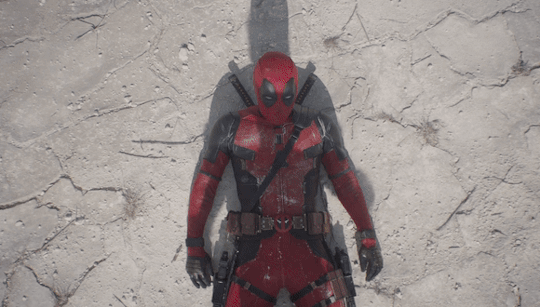
I just saw this movie today and I had to give it its own post! It’s so good. Bloody and violent and vulgar but that’s Deadpool. He can do PG 13 but he shines in R rated fair. Heck even his Disneyland Avengers Campus variant is PG cracking a few sex innuendo jokes that only parents will get. But the real draw is Hugh Jackman’s return as Wolverine. When a rouge TVA agent tells Wade he wants him to join the Sacred Timeline but his universe will get pruned, Wade is desperate to save his universe and the people he loves. When he’s told his universe is dying because its version of Logan died, he steals a timepad to find a Wolverine to replace him. Only to find the so called Worst Wolverine. They both get pruned to the void and have to survive a delightfully crazy and dangerous Cassandra Nova, a variant twin sister to Charles Xavier. There are so many fight sequences that are incredibly insane. Plus Hugh Jackman is finally in the comic accurate suit. Including the mask! They save that bit for the third act but it’s so satisfying to see him wearing it. Speaking of which…
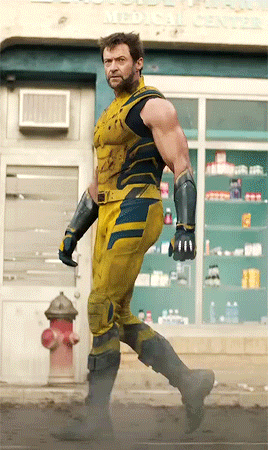
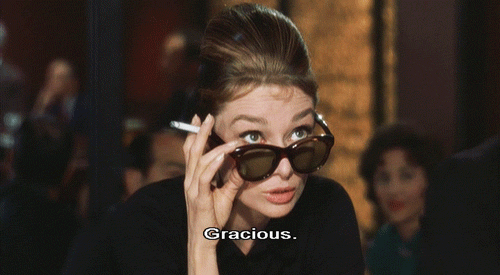
Lord that man is pretty…(whispers from the sidebar) What? What do you mean he’s single now!? Dang it…(thinks of that one scene at the end where his shirt literally explodes off) I’m doomed…
Here’s some other things I loved about this movie…

She may have won Britain’s Ugliest Dog Contest, but she’s still freaking adorable! 🥰 Wade Ryan Reynolds melting every time he sees Mary Puppins aka Dogpool was everything. Plus Logan cleverly uses her to get past a Deadpool Corp without getting hurt. That was good.
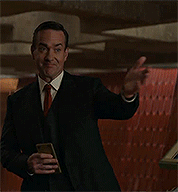
Paradox was a fun secondary villain. And a stand in for not only the meta commentary about the corporate merger of Disney and Fox, but also the certain kind of fan that discounts the so called “bad movies” (and tv shows) of the MCU and thinks they know better than the people in charge of the MCU…you know what I’m talking about. Whereas this movie is a love letter to the Fox Marvel Universe in all its forms.
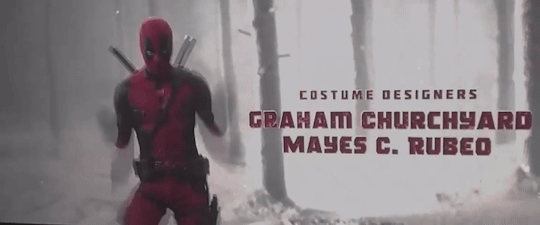
The opening fight sequence to Bye Bye Bye made my millennial self giddy with glee.
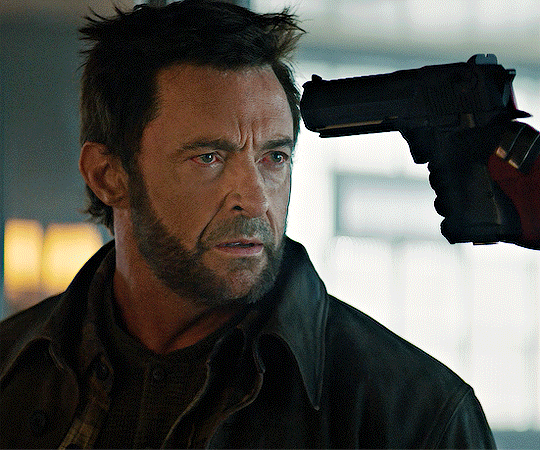
Again Hugh Jackman’s performance as Wolverine. This variant lost his X Men to hateful humans and he went in berserker mode killing bad and good guys. He lost his whole world and then comes this guy that won’t shut up saying he needs help saving his whole world and he shows Logan a picture of his friends. The parallels man…plus Logan helping Wade ends up getting him a new purpose and friends. And Wade begins the movie wanting to matter and learning he does to the people he loves. And the bromance Ryan Reynolds and Hugh Jackman share in real life is echoed on screen. Granted a little more reluctantly on Logan’s part…and Ryan and Hugh didn’t need a Honda Oddesty to build their relationship on…😉
The Cameos I won’t spoil here. But a few genuinely surprised me.
This bit of fan service…
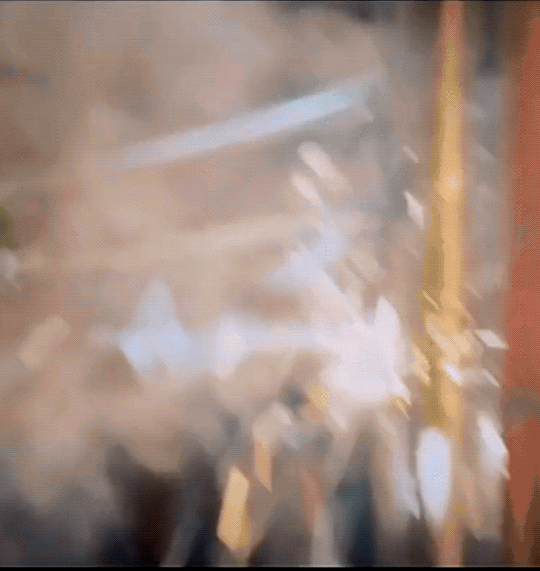
Again….

Plus they gave this Logan a happy ending! With new friends and a purpose! And he moved in with Wade and Blind Al and Mary Puppins…so what I needed to see after seeing Logan. Which was good, but a little depressing. I need happy Logan in my life. And Hugh Jackman wouldn’t hurt either…
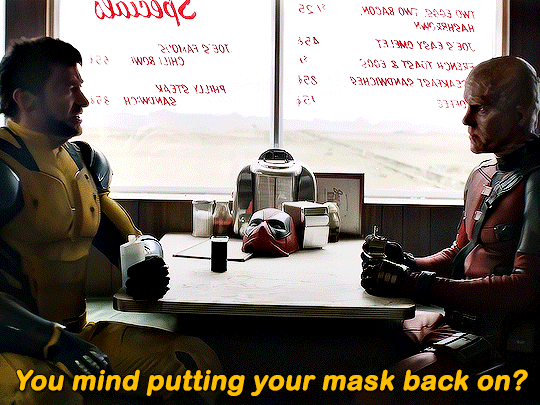
#disney#marvel#deadpool and wolverine#movie spoilers#spoilers#deadpool#wolverine#Deadpool and Wolverine spoilers#wade wilson#logan howlett
33 notes
·
View notes
Text
youtube
The Mouse Guard
Directed by Wes Ball
20th Century Fox/Wētā FX, 2019 (terminated by Disney following their merger with 21st Century Fox)
25 notes
·
View notes
Text

Hello,everyone on Tumblr,
I want you to please spare a minute to help me with my petition on Change.org to help make a difference by bringing something back to the way it was before and give enough signatures to the point, they attract media coverage.
I started Bring Back 20th Century-Fox by getting Disney back in March 20th,2022 to sell it and it's assets back to Fox Corp to help make a difference for the media industry and all of Hollywood,since I feel Disney buying 20th Century-Fox and it's assets in 2019 was a complete horizontal and big mistake in the history of the company and impacted all of Hollywood and fans who grew up watching many of Disney and Fox's content and was a desperate,poor move to get in a grip on blockbuster content,which is just pointless,since Disney originally had Touchstone Pictures from 1984 to 2016 and Miramax Films from 1993 to 2010,so buying another studio that is already a successful Hollywood powerhouse was just a horrible choice and needs to be reconsidered and sold back. Plus,Disney will plan to vacate 20th Century Studios out of the Fox lot at the end of the year.
So,everyone on Tumblr, this is very important and you need to help me with getting Disney to sell back Fox to it’s original owners,give it signatures and supporters enough to let the world know how much my petition means and let Disney and Fox Corp reconsider their mistake,have the Mouse House learn that they went too far in their monopoly here, and undo the merger they did 6 years ago and have Fox go back to the way it was before
Everyone,please help me with this and understand what I mean about Disney’s ownership of Fox,why their acquisition was such a dumb,expensive move,felt so pointless, and should’ve never happened if the FCC stepped in and stopped Disney from doing that 6 years ago or the Murdoch family should've said no to the deal,so we can bring Fox back to the way it was by having Disney selling the studio and it's assets back to it's original owners,Fox Corporation and revive Touchstone Pictures. So,please,you all need to give a minute to help me with this petition and get enough signatures,supporters,and sharers to finally gain media coverage. I still miss Fox as a independent movie studio and Disney as a magical entertainment company. I know Disney buying ABC,Pixar,Star Wars,and Marvel is fine,but buying Fox is just taking things way too far.
Links: https://www.change.org/p/bring-back-20th-century-fox-by-getting-disney-to-sell-it-back-to-fox-corp/
3 notes
·
View notes
Text
Of course, this is the fundamental issue with Deadpool and Wolverine. It’s not a story, it’s a collection of familiar intellectual property bundled into a two-hour package, and fans would complain if Wolverine either waited to put the costume on or eventually symbolically took it off. So the costume stays on for the movie’s runtime, because that is the priority here. That’s the primary purpose of the movie. Even the most basic storytelling logic is secondary to the desire to pander to empty nostalgia. It’s very interesting what Deadpool and Wolverine can and cannot joke about, what topics are deemed out of bounds for this most irreverent of franchises. There are no references to either T.J. Miller or Jonathan Majors, though that is to be expected. There are no references to Cable, Domino or Julian, despite the fact that they formed the emotional crux of the last film. They’ve seemingly been replaced by Shatterstar, who is alive for some reason. And who Deadpool no longer hates, for some reason. Under the Disney brand, Deadpool and Wolverine is thoroughly domesticated. Any implication that the making of this movie was troubled is sorely out of bounds. There is another small but appreciable shift between Deadpool and Wolverine and the previous two movies in the franchise. The opening credits in Deadpool and Deadpool 2 were irreverent and passive aggressive. Deadpool was directed by “an overpaid tool”, Deadpool 2 was directed by “one of the guys who killed the dog in John Wick.” In contrast, Deadpool and Wolverine is “a Kevin Feige production” and “a Shawn Levy film.” Apparently there are some things that you don’t joke about. That’s Deadpool and Wolverine in a nutshell. Or a fan-service-y yellow costume.
Still, there is something interesting here. Last year’s summer blockbusters were largely about how man had killed god, whether literally or metaphorically. The High Evolutionary stepped into the role of creator in Guardians of the Galaxy, Vol. 3. The entire journey of The Creator was to turn off the life support keeping “the Creator” alive. Barbie was about the exile from the Garden. Fast X found Dante (yes) trying to blow up the Vatican because he died and discovered there was no afterlife. Oppenheimer finds mankind taking atomic power into their own hands, “a terrible reckoning of divine power.” Loki imagines what it means to kill He Who Remains. As such, it’s interesting that this year’s blockbusters seek to fill that existential void with something: intellectual property. It’s no surprise so many of this year’s blockbusters are about intellectual property surviving the literal or metaphorical death of the author. Deadpool and Wolverine survive the merger and acquisition of Fox. Harold contemplates his creator’s mortality in Harold and the Purple Crayon. IF was about the idea that nobody outgrows their childhood imaginary friend. Argylle is the story of an author who discovers that she is ultimately a character in her own narrative. In these stories, fiction survives the loss of its creator. Intellectual property endures. Indeed, intellectual property moves to fill the gap. So many modern films are “spreadsheet movies”, films about watching companies celebrate how much stuff they own. Space Jam, The Flash, Deadpool and Wolverine. There is no story, no theme, no purpose, no character. There is only intellectual property, imagery and iconography to be memed and reproduced and reimagined and reworked, until any residual meaning is completely erased. But intellectual property doesn’t just survive. It redeems. It will save you. It is your messiah. What is Madame Web but A Very Spider-Man Nativity, the story of the birth of one Peter Benjamin Parker mythologised, with three wise Spider-Women in attendance? The joke in Deadpool and Wolverine is that Deadpool is “Marvel Jesus”, but the film is too smart to play that straight. Instead, it casts Wolverine as the messiah. Wolverine is “the anchor being.” Only through Wolverine’s death and rebirth can the world itself be redeemed, the universe born again, the centre allowed to hold. Hell, he’s even crucified at one point in Deadpool and Wolverine. [...] (It is telling that even the void has no room for anybody but superheroes. Second chances are reserved entirely for pieces of recognisable iconography, not for ordinary people. There is no humanity to be found in Deadpool and Wolverine, the narrative equivalent of watching an executive move items around a spreadsheet for two straight hours.)
7 notes
·
View notes
Text
Writers Guild West Official: Era of Hollywood Mergers Hastened the Strike
August 10, 2023
Laura Blum-Smith, the Writers Guild of America West’s director of research and public policy, considers the strike a result of a tsunami of Hollywood mergers that has handed studios and streamers the power to its exploit workers.
“Harmful mergers and attempts to monopolize markets are a recurring theme in the history of media and entertainment, and they are a key part of what led 11,500 writers to go on strike more than 100 days ago against their employers,” Blum-Smith said on Thursday at an event with the Federal Trade Commission and Department of Justice over new merger guidelines unveiled in July.
She pointed to Disney, Amazon and Netflix as companies that “gained power through anticompetitive consolidation and vertical integration,” allowing them to impose ���more and more precarious working conditions, increasingly short term employment and lower pay for writers and other workers across the industry.” But she sees revisions to the merger guidelines that address labor concerns a key part of the solution to prevent further mergers in the entertainment industry moving forward.
“The FTC and DOJ’s new draft merger guidelines are part of a deeply necessary effort to revive antitrust enforcement,” she added. “Compared with earlier guidelines, the new ones are much more skeptical of the idea that mergers are the natural way for companies to grow. And they focus more on the various ways mergers hurt competition, including how mergers impact workers.”
In July, the FTC and DOJ jointly released a new road map for regulatory review of mergers. They require companies to consider the impact of proposed transactions on labor, signaling that the agencies intend to review whether mergers could negatively impact wages and working conditions. FTC commissioner Alvaro Bedoya, who was joined by agency chair Lina Khan, said in a statement about the guidelines that “a merger that may substantially lessen competition for workers will not be immunized by a prediction that predicted savings from a merger will be passed on to consumers.” Historically, transactions have been considered mostly through the lens of benefits to consumers.
The guidelines lack the force of law but influence the way in which judges consider lawsuits to block proposed transactions. They also tell the public how competition enforcers will assess the potential for a merger’s harm to competition.
Antitrust enforcers have steadily been taking notice of negative impacts to labor as a result of industry consolidation. “We’ve heard concerns that a handful of companies may now again be controlling the bulk of the entertainment supply chain from content creation to distribution,” Khan said last year during a listening forum over revisions to the guidelines, in a nod to anticompetitive conduct by studios that led to the Paramount Decrees. “We’ve heard concerns that this type of consolidation and integration can enable firms to exert market power over creators and workers alike.”
Adam Conover, writer and WGA board member, said in that April 2022 forum that his show Adam Ruins Everything was killed by AT&T’s acquisition of Time Warner in 2018 when TruTV’s parent company forced the network to cut costs. He stressed that a handful of companies “now control the production and distribution of almost all entertainment content available to the American public,” allowing them to “more easily hold down our wages and set onerous terms for our employment.” It’s not just writers that are impacted by an overly consolidated Hollywood either, he explained. After Disney acquired 21st Century Fox in 2019, he said that the studios pushed the industry into ending backend participation and trapping actors in exclusive contracts preventing them from pursuing other work.
Blum-Smith said that aggressive competition enforcement is necessary as “Wall Street continues to push for more consolidation among our employers despite the industry’s history of mergers that failed to deliver any of the consumer benefits they’ve claimed that left writers and audiences worse off with less diversity of content and fewer choices.”
“More mergers will leave writers with even fewer places to sell their work and tell their stories and the remaining companies will have even more power to lower pay and worsen working conditions,” she warned. “Strong enforcement against mergers is essential to protect workers in media and workers across the country and these guidelines are an important step in the right direction.”
2K notes
·
View notes
Text
Fox Properties in Emoji Blitz






Leave it to Emoji Blitz to capitalize on the Disney-Fox merger. Still needs more Blue Sky representation though. Surprised there's no Simpsons either, when they've been crossing over with Disney pretty frequently in the Disney+ specials.
Luke is in this post because Star Wars was originally under Fox, and I wanted to keep the rows even.
3 notes
·
View notes
Text
I just had a vision that the inevitable DC-Marvel crossover movie will begin production before 2030. It'll have James Gunn's new Superman and Tom Holland Spiderman (Disney will either have acquired 100% of the rights from Sony by then, or else they will have absorbed Sony Pictures in a merger like 20th Century Fox). You know those fake movies that are just commercials for a studio's other IPs? Wreck It Ralph 2, Space Jam 2, Chip and Dale, Ready Player One; it'll be one of those (I call this genre Corporate Masturbation, but I'm sure somebody else has a better name for it), a bloated mess with 15 or 20 b- and c-list heroes crammed in the background, as well as an OG Avengers reunion (very short cameos, because despite it costing $400 million the studio will still say they "can't afford" Robert Downey Jr or Chris Evans anymore). It'll make a billion dollars, billion and a half maybe, but leave no real mark on pop culture, like Avatar 2 did. It'll come and go without much fanfare, but it won't bomb which means it'll be what leads to the Disney-Warner merger by 2040. I say merger, but really it'll be Disney buying the bulk of Warner-Discovery outright and selling off the entrails to smaller companies so as to avoid an anti-monopoly suit.
#i have seen the future#disney#marvel#sony#warner bros#warner discovery#dc#superhero movies#mcu#dceu#dcu#crossover
8 notes
·
View notes
Text
Watched Nimona. That was a really good movie! On the one hand, absolutely crazy that Disney scrapped it after the Fox merger. On the other hand, seeing the end result, I'm kind of glad that it got to a different studio. Would Disney have been able to do this justice? They still think "don't get married on first sight" is edgy critique and subversion of fairy tales that deserves a standing ovation.
This one is way more out there, partly in subject matter, partly in how gay it is, but perhaps most notably in style and in how crazy it allows itself to get. The details of Nimona's character and her weird friendship with Bal are at least as important to the story as its overall message of accepting people who are different, if not more so.
I had previously read some of Nimona back when it was still a webcomic (this made me finally go out and buy the graphic novel that it became). This is certainly very different in both content and style, but everything about it feels like an appropriate and very fun take on the subject matter.
Anyway, go watch it. Very fun, very energetic and anarchic and a lot of fun. Lovely subway station as well.
(This movie is what my previous post is about, by the way. The city behind the walls that does not trade with anyone and doesn't seem to grow its food anywhere does not make any objective sense, but it's perfect from a thematic point of view.)
38 notes
·
View notes